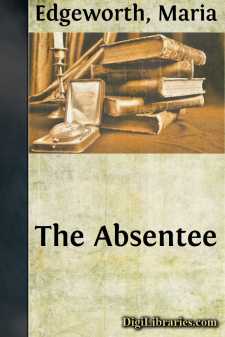Categories
- Antiques & Collectibles 13
- Architecture 36
- Art 48
- Bibles 22
- Biography & Autobiography 815
- Body, Mind & Spirit 144
- Business & Economics 28
- Children's Books 18
- Children's Fiction 14
- Computers 4
- Cooking 94
- Crafts & Hobbies 4
- Drama 346
- Education 58
- Family & Relationships 59
- Fiction 11834
- Games 19
- Gardening 17
- Health & Fitness 34
- History 1378
- House & Home 1
- Humor 147
- Juvenile Fiction 1873
- Juvenile Nonfiction 202
- Language Arts & Disciplines 89
- Law 16
- Literary Collections 686
- Literary Criticism 179
- Mathematics 13
- Medical 41
- Music 40
- Nature 179
- Non-Classifiable 1768
- Performing Arts 7
- Periodicals 1453
- Philosophy 65
- Photography 2
- Poetry 896
- Political Science 203
- Psychology 44
- Reference 154
- Religion 515
- Science 126
- Self-Help 85
- Social Science 82
- Sports & Recreation 34
- Study Aids 3
- Technology & Engineering 59
- Transportation 23
- Travel 463
- True Crime 29
Our website is made possible by displaying online advertisements to our visitors.
Please consider supporting us by disabling your ad blocker.
Tales and Novels - Volume 09
by: Maria Edgeworth
Description:
Excerpt
CHAPTER I.
When I was a little boy of about six years old, I was standing with a maid-servant in the balcony of one of the upper rooms of my father's house in London—it was the evening of the first day that I had ever been in London, and my senses had been excited, and almost exhausted, by the vast variety of objects that were new to me. It was dusk, and I was growing sleepy, but my attention was awakened by a fresh wonder. As I stood peeping between the bars of the balcony, I saw star after star of light appear in quick succession, at a certain height and distance, and in a regular line, approaching nearer and nearer. I twitched the skirt of my maid's gown repeatedly, but she was talking to some acquaintance at the window of a neighbouring house, and she did not attend to me. I pressed my forehead more closely against the bars of the balcony, and strained my eyes more eagerly towards the object of my curiosity. Presently the figure of the lamp-lighter with his blazing torch in one hand, and his ladder in the other, became visible; and, with as much delight as philosopher ever enjoyed in discovering the cause of a new and grand phenomenon, I watched his operations. I saw him fix and mount his ladder with his little black pot swinging from his arm, and his red smoking torch waving with astonishing velocity, as he ran up and down the ladder. Just when he reached the ground, being then within a few yards of our house, his torch flared on the face and figure of an old man with a long white beard and a dark visage, who, holding a great bag slung over one shoulder, walked slowly on, repeating in a low, abrupt, mysterious tone, the cry of "Old clothes! Old clothes! Old clothes!" I could not understand the words he said, but as he looked up at our balcony he saw me—smiled—and I remember thinking that he had a good-natured countenance. The maid nodded to him; he stood still, and at the same instant she seized upon me, exclaiming, "Time for you to come off to bed, Master Harrington."
I resisted, and, clinging to the rails, began kicking and roaring.
"If you don't come quietly this minute, Master Harrington," said she, "I'll call to Simon the Jew there," pointing to him, "and he shall come up and carry you away in his great bag."
The old man's eyes were upon me; and to my fancy the look of his eyes and his whole face had changed in an instant. I was struck with terror—my hands let go their grasp—and I suffered myself to be carried off as quietly as my maid could desire. She hurried and huddled me into bed, bid me go to sleep, and ran down stairs. To sleep I could not go, but full of fear and curiosity I lay, pondering on the thoughts of Simon the Jew and his bag, who had come to carry me away in the height of my joys. His face with the light of the torch upon it appeared and vanished, and flitted before my eyes. The next morning, when daylight and courage returned, I asked my maid whether Simon the Jew was a good or a bad man? Observing the impression that had been made upon my mind, and foreseeing that the expedient, which she had thus found successful, might be advantageously repeated, she answered with oracular duplicity, "Simon the Jew is a good man for naughty boys." The threat of "Simon the Jew" was for some time afterwards used upon every occasion to reduce me to passive obedience; and when by frequent repetition this threat had lost somewhat of its power, she proceeded to tell me, in a mysterious tone, stories of Jews who had been known to steal poor children for the purpose of killing, crucifying, and sacrificing them at their secret feasts and midnight abominations....












